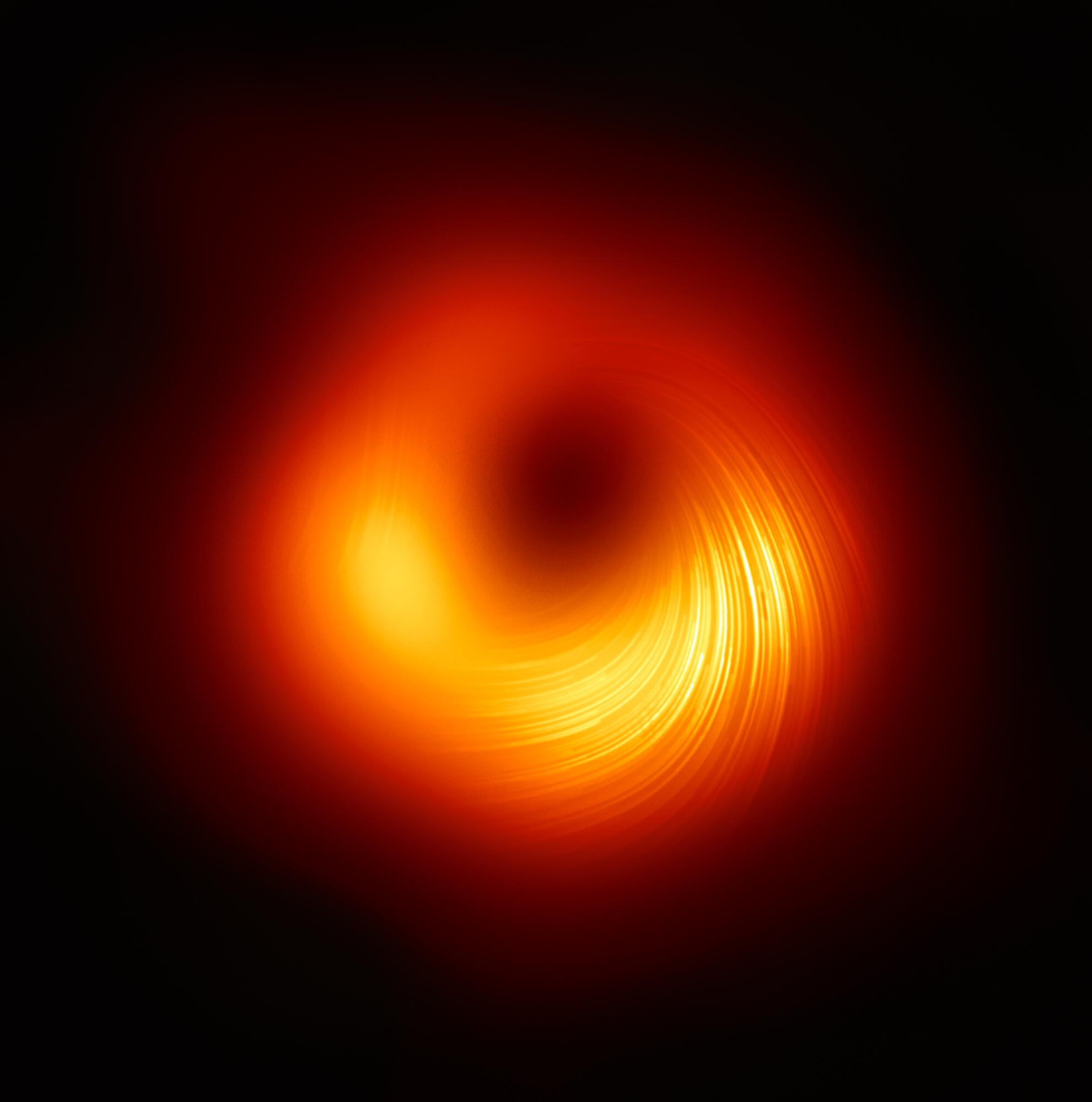This new image shows off magnetic fields swirling around a black hole
The Event Horizon Telescope has sharpened up the historic image it released in 2019 of the massive object at the center of a distant galaxy.

Astronomers have released a brand-new image of the supermassive black hole at the center of the M87 galaxy. It’s a sharper follow-up to a historic 2019 picture, showing the polarized light that traces the monster’s magnetic field lines.
The background: The Event Horizon Telescope made history on April 10, 2019, when it released the first ever image of a black hole. The bright orange circle, located 53 million light-years away, was imaged by eight radio observatories across four separate continents. Their combined resolution was able to peer all the way out into the center of M87 and glimpse the glowing light from the ultra-hot gas and dust swirling around the supermassive black hole’s event horizon (the point of no return, where the black hole’s gravity is so powerful no light or matter can escape its clutches).
What’s new here: In a pair of new studies published in the Astrophysical Journal, astronomers went back through the archive of data that led to the first image and analyzed the movement of polarized light around the object. Light waves normally oscillate back and forth, in many different directions. But these waves can become polarized by magnetic fields, and that oscillation becomes confined to a single linear plane. This light effectively traces the black hole’s magnetic field lines, creating a sharper visual than the blurred doughnut shown off in 2019.
Why it matters: Magnetic fields shape how matter around the black hole moves and swirls, which can affect the feeding habits and evolution of a black hole. By studying how these magnetic fields work and change over time, scientists can better understand how the accreting material around the black hole behaves and how it’s influenced, which can inevitably help tell us more about how supermassive black holes are formed and how they grow.
Deep Dive
Space
How to safely watch and photograph the total solar eclipse
The solar eclipse this Monday, April 8, will be visible to millions. Here’s how to make the most of your experience.
How scientists are using quantum squeezing to push the limits of their sensors
Fuzziness may rule the quantum realm, but it can be manipulated to our advantage.
The great commercial takeover of low Earth orbit
Axiom Space and other companies are betting they can build private structures to replace the International Space Station.
Stay connected
Get the latest updates from
MIT Technology Review
Discover special offers, top stories, upcoming events, and more.